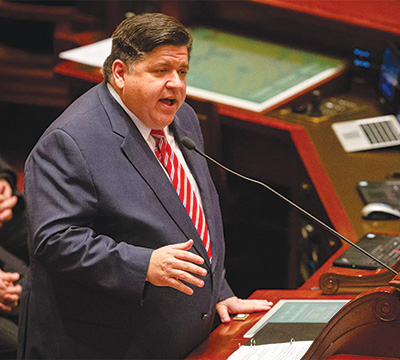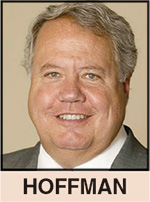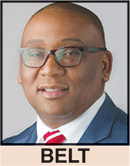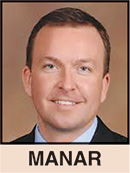By CARL GREEN
Illinois Correspondent

Springfield, IL – Illinois Gov. J.B. Pritzker used his 2020 Budget Address last week to remind voters of the need for his proposed Fair Tax state constitutional amendment, which would allow the state’s highest-income recipients to pay higher tax rates and ease the burden on working families.
The budget he presented was thorough and balanced, and contained numerous cost-cutting measures, but some of its elements – notably education funding – were less certain if the Fair Tax plan is not approved in the November election.
Savings would include $225 million a year through operating efficiencies, agency consolidations and eliminating boards and commissions that are no longer needed. New revenue sources include the cannabis industry and expanded gaming.
Passing the Fair Tax would complete the picture, Pritzker said.
“For at least the last 50 years, the burden of shoring up our state finances has fallen hardest on the 97 percent of Illinoisans who make $250,000 a year or less,” he said. “You’ve been paying a higher portion of your income, when you include income taxes, property taxes and sales taxes, than those who make $1 million a year or more. That’s not fair, and I‘ve made it very clear that I believe it’s time for a change.”
The Fair Tax would go into effect Jan. 1, the half-way point for the state’s budget year. While the top three percent of earners would pay higher rates, the rest would pay less or the same. Revenue generated would help the state dig further out of its financial hole.
HARD WORK AHEAD
Metro-East and southern Illinois legislators were supportive of Pritzker’s budget proposals but warned that it will take long and hard negotiating to craft a final plan to continue the improvements made in Pritzker’s first year as governor following the disastrous tenure of former Gov. Bruce Rainer and his war on unions and state government.
 “Governor Pritzker provided an open and honest assessment of the state’s fiscal position in his address, and I am ready to work in a bipartisan manner to craft a balanced budget to put Illinois back on the right track,” said state Rep. Jay Hoffman (D-Swansea).
“Governor Pritzker provided an open and honest assessment of the state’s fiscal position in his address, and I am ready to work in a bipartisan manner to craft a balanced budget to put Illinois back on the right track,” said state Rep. Jay Hoffman (D-Swansea).
“Last year, the governor and the legislature worked to identify areas of excessive spending to reduce the debt burden on taxpayers. We successfully budgeted to streamline agency operational costs and improved efficiencies to provide better financial stability and pay down the enormous backlog of unpaid bills.
“While Illinois is certainly on stronger financial ground than it has been in several years, there are still tough decisions ahead as lawmakers work toward greater financial responsibility.”
PRISON STAFFING
 Sen. Christopher Belt (D-Centreville) newly named chairman of the Senate Democrats’ Black Caucus, noted that the budget includes improved staffing in state prisons.
Sen. Christopher Belt (D-Centreville) newly named chairman of the Senate Democrats’ Black Caucus, noted that the budget includes improved staffing in state prisons.
“I spent 16 years with the St. Clair County Probation and Detention Center and two years as the regional deputy administrator of Aftercare for the central and southern regions of Illinois, so I strongly applaud him for considering the safety of our correctional officers,” Belt said.
Sen. Andy Manar (D-Bunker Hill) said he was pleased with the jobs and infrastructure plans but had hoped to hear a firmer commitment to school funding.
 “…It is concerning that the proposal leaves open the possibility that our budget may not meet the established progress we expect toward school funding equity,” Manar said. “In any case, in any revenue structure, the right to a high-quality public education doesn’t change, nor does our responsibility under the law to see it through.”
“…It is concerning that the proposal leaves open the possibility that our budget may not meet the established progress we expect toward school funding equity,” Manar said. “In any case, in any revenue structure, the right to a high-quality public education doesn’t change, nor does our responsibility under the law to see it through.”
SCHOOL FUNDING
Pritzker’s budget supports increased K-12 education funding, yet a significant portion of money needed to satisfy the state’s school funding requirement by law still hangs in the balance, Manar said. That relief could come with the additional funding of the Fair Tax plan.
“Beyond that, I was very glad that the governor’s budget proposal advances issues that I view as imperative for a robust downstate economy,” Manar said. “It streamlines the process of starting a small business, maintains strong support for tech education and building trades careers, and sustains our state’s unprecedented investments in rural and downstate infrastructure.”
TAX STRUCTURE PRIORITY
Rep. Nathan Reitz (D-Steeleville) said a fairer tax structure remains a top priority for him.
 “Families across our region contemplate moving across the river to escape Illinois’ immense tax burden, so fighting for fairer taxes for our families and bringing true property tax relief to local homeowners are my top priorities,” he said. “I refuse to support a budget plan that balances on the backs of middle-class families, seniors and other vulnerable residents.
“Families across our region contemplate moving across the river to escape Illinois’ immense tax burden, so fighting for fairer taxes for our families and bringing true property tax relief to local homeowners are my top priorities,” he said. “I refuse to support a budget plan that balances on the backs of middle-class families, seniors and other vulnerable residents.
“While our state faces an enormous backlog of unpaid bills, it is critical to prioritize paying off old debts while still funding critical services like Meals on Wheels, education and public safety, and keeping our promise to pensioners by making full pension payments,” he added.
